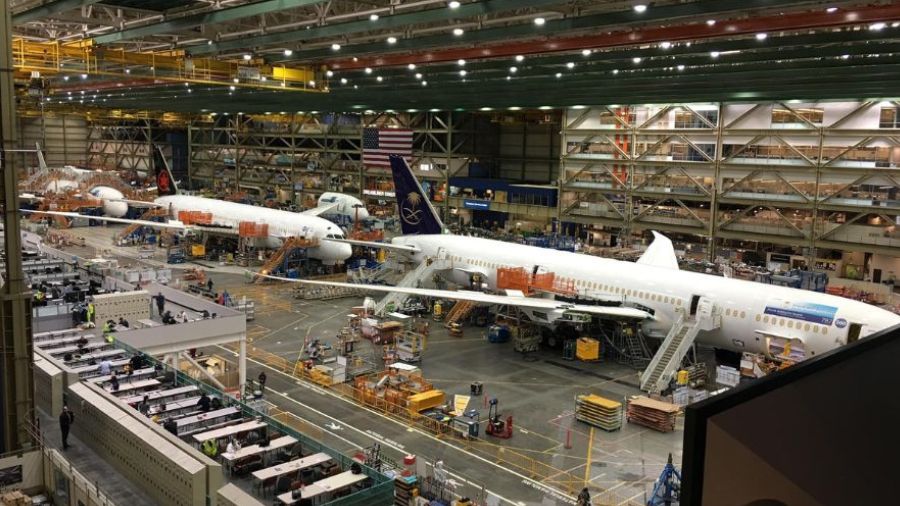Lawmakers worry about crude oil transport after train derailment in Custer
Dec 23, 2020, 5:39 AM

A train derailment in Custer, Wash. in December of 2020. (Photo courtesy of the state Department of Ecology)
(Photo courtesy of the state Department of Ecology)
The derailment of a train 108 cars long carrying crude oil to the Phillips 66 Refinery in Ferndale on Tuesday prompted a concerned response from King County Executive Dow Constantine.
The executive says he’s convened officials across the region to raise awareness about the risks of oil and coal transportation as part of the Safe Energy Leadership Alliance (SELA).
“We must be honest about the impacts of coal & oil terminals on public safety, the region’s economy, & the natural environment,” Constantine tweeted. “I look forward to working with local, state, and tribal leaders to address this issue.”
Constantine added that residents in the Pacific Northwest can’t grow complacent about the “danger of these sorts of human-made disasters.”
The Pacific Northwest is no stranger to debate over whether it’s safe to have oil trains moving through its downtown corridors or pushing past neighborhoods perched above railroad tracks.
In July 2014, Constantine said something similar to his response on Tuesday. Five train cars had derailed as the engine was pulling of the Interbay rail yard in Seattle. No one was injured in that accident, and no oil spilled, but it was a wake up call.
Constantine said the incident underscored the need for federal regulators to take action immediately on new rules to protect the public. He also convened a group of Northwest leaders.
“I’m very concerned that large volatile oil trains pose significant risk for derailment, fire, explosion, loss of property and life,” he said in 2014.
Oil train safety was still top of mind a year after the runaway train that exploded in 2013 in the Quebec town of Lac-Megantic. That incident killed 47 people.
Shortly after the derailment in 2014, the Seattle City Council sent a letter to U.S. Transportation Secretary Anthony Foxx supporting a petition filed by environmental groups seeking an emergency ban on shipments of Bakken and other highly flammable crude oil in old style tankers known as DOT-111 cars.
“The city of Seattle is deeply concerned about the threat to life, safety and the environment of potential spills and fires from the transport of petroleum by rail,” the letter said.
In August 2014, King County held its first-ever exercise to prepare for an oil train explosion. It was a “tabletop exercise” and responders were given the scenario of a derailment followed by a massive explosion near Boeing Field.
Constantine said then that he came away from the exercise confident the county is prepared, but still extremely concerned with the potential for catastrophe.
“You know, these tracks pass right by Safeco Field, right by CenturyLink Field, under the biggest buildings underneath downtown,” Constantine said. “These trains carry many, many cars and many, many gallons of oil, so the scale is potentially pretty significant.”
Nearly a year later, in June 2015, there were protests over oil trains during the U.S. Open at Chambers Bay. At the time, BNSF Railway spokesman Gus Malonas said there were an average of 60 trains passing by the golf course every day.
In July 2016, the Edmonds City Council passed unanimously a resolution to ban oil trains from traveling through the waterfront town. However, that resolution is mostly symbolic. The resolution was largely inspired after an oil train derailment in Mosier, Oregon.
Most recently, in spring of 2019, the Washington state Legislature passed Senate Bill 5579, which “require facilities offloading or loading crude oil from a rail tank car to meet safer vapor pressure standards if the state experiences an increase in oil train traffic.”
The law states that oil must have a vapor pressure of less than nine pounds per square inch (9 psi). Investigators found that the only tank car that did not explode in that derailment was carrying oil with a vapor pressure of 9 psi, according to Gov. Inslee’s office.
Inslee signed the legislation in May 2019. However, Inslee’s office noted that “the new standard will not take effect until two years after the state Department of Ecology provides notification of the increase relative to the volume transported in 2018.”
Failure to meet the mandate could result in penalties up to $2,500 per day, per tank car.
The state said in May 2019 that 17 trains per week travel in Washington to refineries.
Second Congressional District Representative Rick Larsen has questions himself about the oil train derailment in near Custer on Tuesday. He worked extensively on making the oil tank cars safer, and wants to know if those that crashed were the newer models. Larsen told KIRO Radio he’d be “shocked” to find out they were older, but if they were, then BNSF and BP will have some explaining to do.
“The federal government is the lead on making that movement of crude safer, and the derailment shows there’s a lot of work to do,” he said.
Larsen won’t speculate on what caused the derailment, but says he’ll wait for the results of the investigation by the National Transportation Safety Board and the FBI.
The KIRO Radio Newsdesk contributed to this report.













